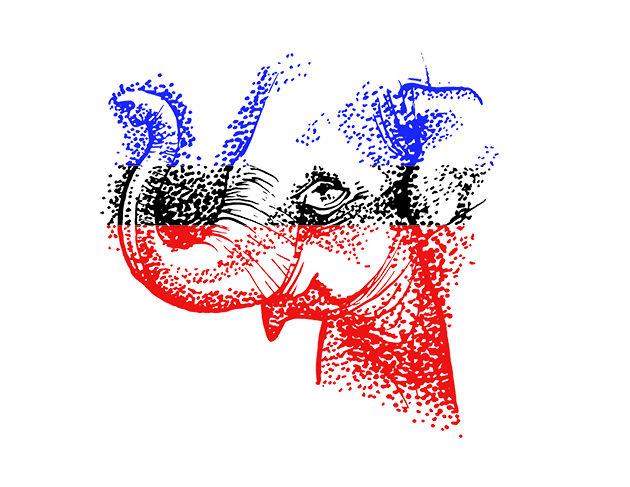Tuesday night will see the fourth GOP debate of the 2016 presidential election cycle hosted at the Milwaukee Theatre, in Milwaukee, Wisconsin.
The event, put on by the Fox Business Network, promises to focus on the economy and jobs, and has contrasted itself in promotional advertisements as the antithesis of last week’s CNBC-moderated debate.
The prime-time debate will feature just eight candidates instead of 10, as FBN cut the two lowest-polling candidates — Chris Christie and Mike Huckabee — from the main stage. The lowest polling candidates will take the stage at the earlier so-called “happy hour debate.” The decreased amount of candidates on the stage will mean each person will get an increased amount of time to answer questions.
Texas A&M political science professor and researcher Paul Kellstedt said what candidates do with that extra time Tuesday evening may not add serious substance.
“I think it’ll depend more on the candidates themselves than it will on whoever is asking the actual questions,” Kellstedt said. “But certainly having fewer people on the stage will give everybody else some extra time to do it, or some extra time for them to run more commercials — depending on what [FBN] is going to do.”
Kirby Goidel, Texas A&M Public Policy Research Institute fellow and professor of communication, said despite a potential lack of depth, he thought there would certainly be things to pay attention to Tuesday evening — namely Jeb Bush.
“Sort of all eyes [are] on Jeb Bush,” Goidel said. “Can he get any momentum at all? Can he establish a narrative for his campaign and why he’s running, other than that he’s a Bush?”
Goidel said thus far the former Florida governor hasn’t really carved out a place for himself in the race — something he desperately needs to do to stay viable.
“His narrative has been sort of, ‘I’ve been a good governor’ and, ‘What else am I going to do?’” Goidel said. “So he doesn’t have, ‘I’m the person for this particular moment.’ He hasn’t really carved out a narrative that places him from the standpoint of, ‘Where is America right now and why does it need Jeb Bush?’”
Goidel said while Tuesday will be a big moment for Bush to stand out, the candidates’ opportunities to talk about the economy will be something to watch, especially on international trade.
Kellstedt said when it comes to elections there are always two “trump cards” — the economy and war. Kellstedt said if the economy were to go significantly downhill at anytime over the next year leading up to the general election, it would overshadow any other issues.
Jose Avila, political science senior, said although he identifies as more of a moderate, he ultimately votes based on economic policy. The reason for this, Avila said, is because the health of the economy has such a significant impact on all the other agenda items he cares about.
“The economy affects every single thing that we work with,” Avila said. “It affects education because if we don’t have good economy, education is usually the thing that they put aside. So I think the economy should be my number one priority because the economy does affect education reform and does affect immigration reform.”
Avila said while he agrees with Kellstedt on the attention-sapping power of war and a poor economy for voters, he believes the social movements that grow during prosperous and peaceful times can’t just be tossed to the wayside during periods of conflict and economic downturn.
Republican candidates to talk economy, jobs in fourth round of GOP debates
November 10, 2015
0
Donate to The Battalion
$1815
$5000
Contributed
Our Goal
Your donation will support the student journalists of Texas A&M University - College Station. Your contribution will allow us to purchase equipment and cover our annual website hosting costs, in addition to paying freelance staffers for their work, travel costs for coverage and more!
More to Discover










